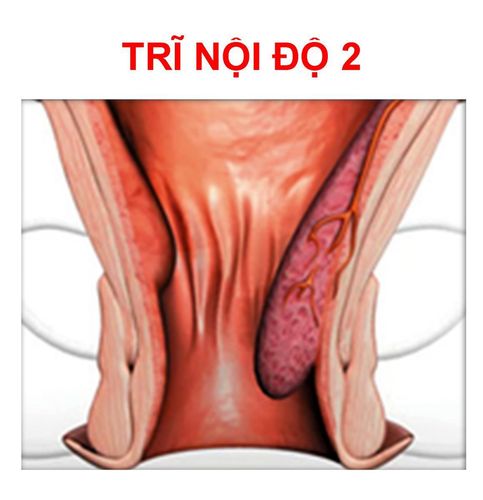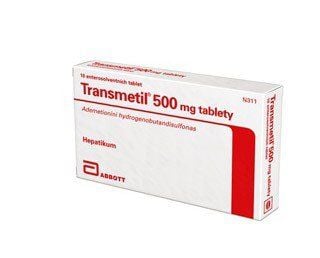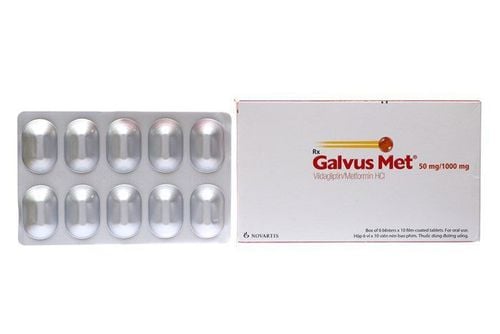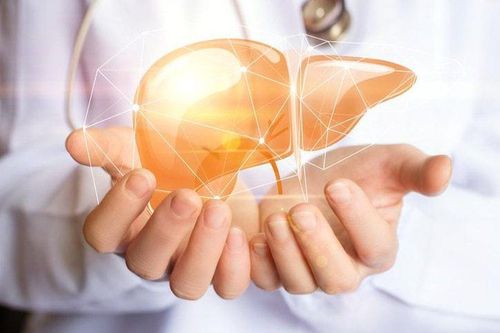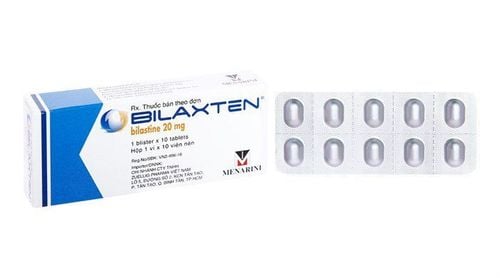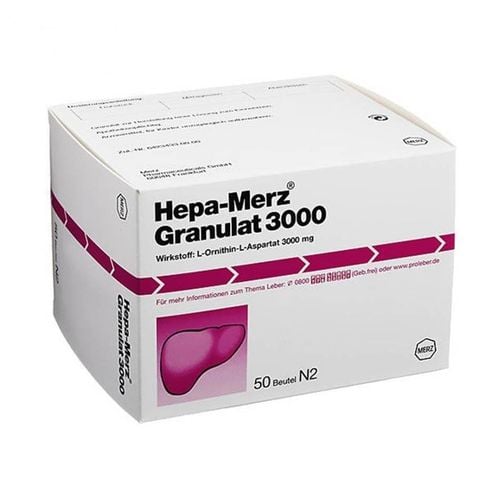Fatty liver disease is a common condition with an increasing prevalence. If not detected and treated early, fatty liver disease can lead to hepatitis, cirrhosis, or even liver cancer. Therefore, the best approach is to prevent the disease by incorporating foods that help maintain a healthy balance for the liver.
1. What is fatty liver disease?
Fatty liver disease is a condition where excessive fat accumulates in the liver cells. Normally, some fat exists in the liver, but when the amount of fat increases and constitutes more than 5%–10% of the liver's weight, it can be considered fatty liver disease. Excessive fat buildup in the liver makes it more susceptible to damage, potentially leading to hepatitis, cirrhosis, or liver failure.
There are several causes of fatty liver disease, such as hepatitis C, metabolic disorders like diabetes, and thyroid diseases. Fatty liver disease is classified into two main groups:
- Alcoholic Fatty Liver Disease (AFLD):
Fatty liver caused by alcohol consumption requires an essential treatment measure: stopping alcohol consumption. Without this, the condition may worsen, progressing to cirrhosis or even liver cancer. - Non-Alcoholic Fatty Liver Disease (NAFLD):
This is primarily caused by metabolic disorders, with a smaller proportion attributed to viral hepatitis. For fatty liver caused by metabolic disorders—often due to excess calorie intake—the key treatment is lifestyle modification.
For example, an improperly planned vegetarian diet can also lead to fatty liver disease. Avoiding all protein or maintaining a vegetarian diet while still consuming alcohol may result in insufficient energy intake for the body, leading to a weakened immune system.
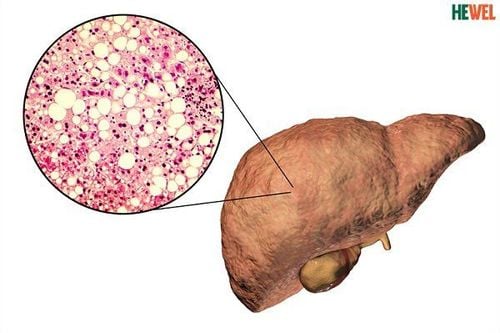
2. What to Eat for Fatty Liver Disease?
If left undiagnosed and untreated, fatty liver disease can progress to hepatitis, cirrhosis, or even liver cancer. So, how should daily diet and lifestyle changes be made to help improve fatty liver? Below are foods that help restore balance for fatty liver disease:
- Turmeric: Turmeric is not only a popular spice but also offers significant health benefits. It helps prevent and treat fatty liver disease by stimulating fat digestion, reducing fat accumulation in the liver. For effective treatment, mix half a teaspoon of turmeric powder with a glass of hot water, let it cool, and drink three times a day. Alternatively, mix half a teaspoon of turmeric powder with a glass of warm milk.
- Lemon: Lemons are rich in vitamin C, a natural antioxidant that helps the liver produce glutathione, which plays a key role in detoxification. Recent studies suggest that lemon contains a compound called naringenin, which reduces liver inflammation associated with fatty liver disease. Drinking fresh lemon water 2–3 times a day for a month or adding thinly sliced lemon to a water bottle for daily consumption can improve fatty liver.
- Apple cider vinegar: Apple cider vinegar is one of the best remedies for fatty liver disease. It promotes weight loss and reduces fat accumulation in the liver. Mix one tablespoon of apple vinegar with one teaspoon of honey in a glass of warm milk, and drink daily before meals for several months to see significant results.
- Green Tea: Green tea is rich in nutrients and antioxidants essential for the body. It supports brain function, improves digestion, eliminates bacteria, enhances fat metabolism, and reduce the risk of cancer. Drinking green tea is highly effective in preventing fatty liver disease, particularly in cases unrelated to alcohol consumption.
- Dandelion: Dandelion is a liver-friendly herb that enhances liver function and is used to treat non-alcoholic fatty liver disease associated with obesity. It helps metabolize accumulated fat in the liver. Brew a teaspoon of dandelion powder with hot water, let it cool for a few minutes, and drink. You can add a bit of honey for better taste. Drink one cup daily, divided into 2–3 portions, consistently for a few weeks. Note: People with diabetes should avoid dandelion as it may cause side effects.
- Papaya: Papaya fruit and seeds have excellent fat-burning properties, making them beneficial for improving fatty liver.
- Protein: Foods rich in protein, such as lean poultry, fish, seafood, eggs, soy products, and legumes, are great for weight loss and maintaining a healthy weight.
- Milk and Dairy Products: Nutrient-rich yet low-fat dairy products, such as skim milk, low-fat yogurt, and cheese, should be included in the daily diet of people with fatty liver disease.
- Other Foods: Licorice can be brewed with warm water or used as a supplement to treat non-alcoholic fatty liver disease. Grapefruit Juice contains powerful antioxidants that enhance liver function.
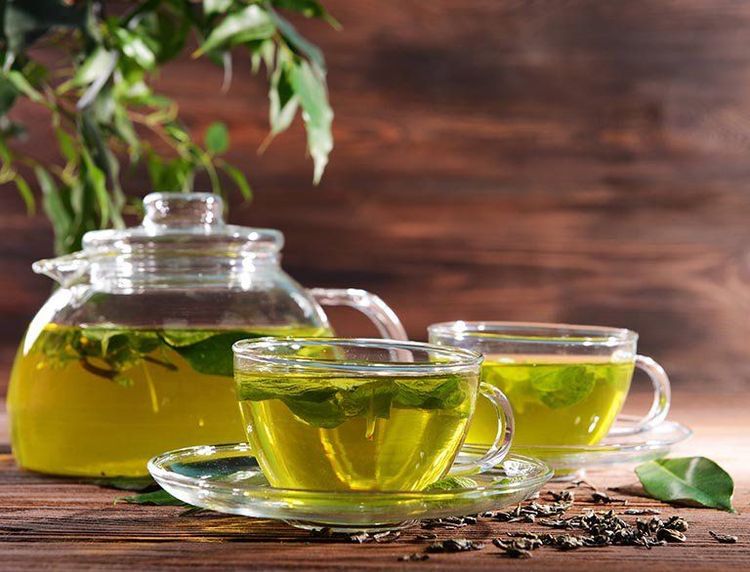
3. Lifestyle changes for fatty liver disease
In addition to paying attention to what to eat for fatty liver disease, changing daily lifestyle habits is also an effective way to manage the condition. Lifestyle modification strategies include:
- Controlling and maintaining an ideal weight: Regularly monitoring body weight and any weight gain is essential in managing fatty liver disease. It helps adjust the amount of excess fat accumulated in the liver. If you are overweight or obese, focus on losing weight to reach your ideal body weight.
- Adopting a healthier diet and eating habits to support liver health: A healthy diet primarily consists of plant-based foods, including fruits, vegetables, whole grains, and plant-based oils. Green vegetables and fruits provide essential vitamins and minerals, especially vitamins A and E, which help prevent further fat accumulation in the liver. This supports better liver function and reduces overworking the liver. Avoid fatty foods, fast food, and snack.
- Exercising regularly and consistently: Aim for at least 30 minutes of exercise daily, a minimum of 5 days per week. If you are new to exercise, start with gentle workouts and gradually increase the intensity. Regular exercise enhances metabolism and burns excess fat in the body, helping with weight loss and maintaining a healthy weight.
In summary, fatty liver disease involves the accumulation of fat in liver cells, making the liver more vulnerable to damage, potentially leading to hepatitis or liver failure. Currently, there is no specific treatment for fatty liver disease. However, the condition can be reversed through changes in diet and daily lifestyle habits.
To arrange an appointment, please call … or make your reservation directly HERE. You may also download the MyVinmec app to schedule appointments faster and manage your reservations more conveniently.
Please dial HOTLINE for more information or register for an appointment HERE. Download MyVinmec app to make appointments faster and to manage your bookings easily.




